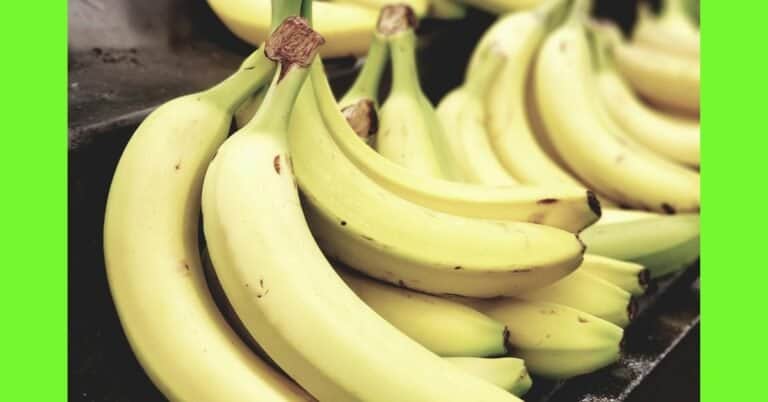Food Institutes And Regulating Bodies In Nigeria

It’s possible you may not be aware that there are bodies and agencies that are responsible for monitoring food and food processing industries.
In this blog, I want to share with you some of the agencies in Nigeria that are responsible for ensuring the healthy and safety practices in the food industry.
Here is a list of some of these organization:
Federal Ministry of Agriculture and Food security (FMAFS)
This institution was created in 1966, with the mission to manage and organize the agricultural sector,
support agribusiness to boost employment and food security throughout commodity value chains,
and promote agro-industrial growth to generate foreign exchange and advance the nation’s socio economic development.
The Mandate is to provide markets for the industrial sector’s goods, create foreign exchange,
support rural socio economic development, and provide food security in agriculture, livestock, and fisheries. Additionally, encourage agricultural employment and services.
The Nigerian Institute of Food Science and Technology (NIFST)
The Institute is the sole Registered Non-Profit Making Organization in Nigeria,
that represents food professionals from the country’s government, industry, academia, and research institutions.
The Institute’s mission reflects NIFST’s abundant human resources.
It holds a vision for good and Abundant Food for all through service to humanity and Country,
resulting in food security and the well being of Nigerians.
The Mission of NIFST is to harness the abundance of Talent, Knowledge and Skills among Food Professionals in Nigeria towards Food Sufficiency and Good Nutrition of the Masses.
International Food Policy Research Institute (IFPRI)
This Institute offers evidence-based policy recommendations to end hunger and malnutrition and to decrease poverty in countries that are developing in a sustainable manner.
It was established in 1975.
A world free from hunger and malnutrition is IFPRI’s vision.
Its goal is to offer evidence-based policy recommendations that eradicate hunger and malnutrition while reducing poverty in a sustainable manner.
IFPRI is involved in promoting Sturdy climate and Sustainable Food Source,
Encouraging Nutritious Foods and Healthy Diets for All While Developing Inclusive and Effective Trade Systems, Markets,
and the Food Industry, Restructuring the Rural and Agricultural Economies,
Increasing Institutional and Governance Stability.
Regulatory Bodies
National Agency For Food and Drug Agency(NAFDAC)
This regulatory body was established in 1992, to regulate and control the production, transportation, distribution, marketing, retailing, and consumption of food,
medications, cosmetics, packaged water, medical devices, chemicals, and detergents (together known as regulated products).
The Director General’s Office and the fourteen (14) directorates that manage the agency’s operations make up the NAFDAC organizational structure.
The NAFDAC is responsible for
- Overseeing an efficient registration process that is transparent and timely, with the goal of producing regulated items that meet the highest standards of quality.
- It encourages food safety initiatives by making sure food establishments follow good manufacturing practices (GMP), which may maintain high-quality food products that are safe for ingestion by humans.
- Make sure food facilities follow good manufacturing practices (GMP) to preserve high-quality food products that are safe for human consumption in order to support food safety programs.
- Give the go-ahead for the import and export of chemicals, and check the storage facility to make sure that safety regulations are followed when handling hazardous and chemical materials.
- Give permission to import and export psychotropic and narcotic medications, together with other restricted substances.
All these are some of the responsibilities of the NAFDAC and more.
The mission is to protect the public’s health by making sure that only food, medications, and other items that are subject to regulations are produced, imported, exported, marketed, distributed, sold, and utilized.
Standard Organization of Nigeria (SON)
The Organization was established 1 January 1970.
The Nigerian Standards Council is the organization that oversees SON.
This is the body that creates policies and oversees the organization’s financial and administrative operations.
Standardization and quality control of goods, especially food items, are within the purview of SON.
To guarantee quality and safety, they create and publish national standards for a range of goods, including food.
The aim and objectives:
- Creation of standards for goods, measures, materials, and procedures, among other things, and promotion of such standards on a national, regional, and global scale;
- Certification of goods used in industry;
- Support for the manufacturing of high-quality products;
- Enhancement of the precision of measurements and dissemination of knowledge about standards.
Vision and Mission
Vision: To enhance living by ensuring quality and standards.
Mission: By ensuring quality and standards, we hope to boost consumer confidence and the competitiveness of Nigerian goods and services on the international stage.
National Environmental Standards and Regulations Enforcement Agency (NESREA)
While NESREA primarily focuses on environmental standards,
It also plays a role in regulating aspects of the food industry that relate to environmental impact and sustainability.
In addition to environmental technology, NESREA is in charge of biodiversity conservation,
sustainable development of Nigeria’s natural resources overall, and environmental standards and regulations.
It also coordinates and maintains relationships with pertinent parties
both inside and outside of Nigeria regarding the enforcement of environmental laws, policies, and guidelines.
Some of its function is to:
- Enforce compliance with any legislation on sound chemical management, safe use of pesticides and disposal of spent packages.
- Police the environmental laws and standards pertaining to noise, the air, land, seas, and other water bodies—aside from the oil and gas industry—by keeping an eye on compliance.
- Enact and enforce adherence to laws, regulations, standards, and policies concerning environmental health, sanitation, and water quality, including pollution control.
Federal Competition & Consumer Protection Commission (FCCPC)
This is a federal government parastatal founded in 1999.
As part of their mandate, they must, among other things, remove dangerous products from the market,
respond quickly to customer complaints, launch consumer awareness campaigns,
make sure that the interests of consumers are taken into account in the proper forum,
and encourage professional, trade, and industry associations to create and uphold quality standards
in their respective domains that protect consumers’ interests.
Did you find this article helpful?
You might also be interested in agricultural institutes in Nigeria.






